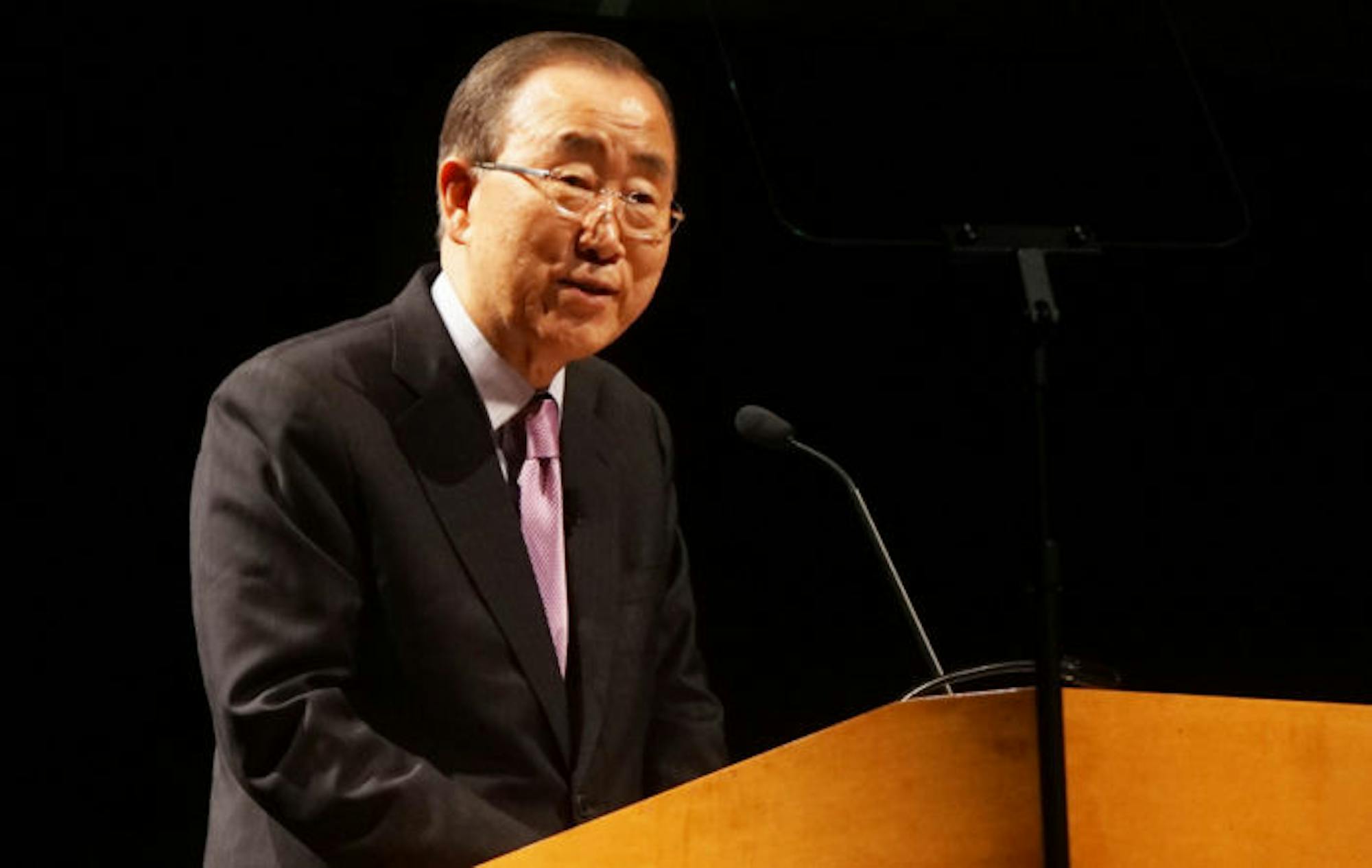Ban Ki-moon, former United Nations secretary-general, led the keynote speech at the third-annual Asia Leadership Forum at Notre Dame on Wednesday evening. Ban, the South Korean native who served as secretary-general from 2007 to 2016, discussed the importance of developing global citizens.
University President Fr. John Jenkins and Rotary International general secretary John Hewko expressed their gratitude for Ban, who they said had come to share with us how we can continue to make meaningful strides further in the world.
Throughout his career at the U.N., Ban, who was the first East Asian elected to the secretary-general role, was successful in expanding the humanitarian and global development agenda, working in the policy realms of poverty, education, climate change, gender equality and public health. Ban’s childhood experiences — specifically the Korean War — led him to this humanitarian work.
“When the North and South began fighting, all the children recognized the blue U.N. flag as the hope,” he said. “They saved us.”
Since his time as secretary-general, Ban has continued to raise awareness for the importance of developing global citizens and the idea that partnerships such as the connection between the U.N. and Notre Dame’s Keough School of Global Affairs and Liu Institute for Asia and Asian studies, can help remedy many of the world’s current problems.
“It is a great honor and privilege to deliver this keynote speech at Notre Dame’s third leadership forum,” Ban said. “This is one of the most celebrated learning institutions in the United States and one rooted in the strong Catholic tradition of pursuing teaching and research focused on the common good.”
Ban credited Notre Dame’s global influence and showed his support for Notre Dame football.
“Indeed Notre Dame’s history, academics, culture and legendary football team are known all around the world, including in Korea,” he said. “Cheer, cheer for old Notre Dame.”
Recognizing both the risks and progress of the world today — tariffs, climate change, artificial intelligence, block chain, robotics and biotechnology — Ban said people must come together to work on different issues.
Even in a country as large as the U.S., he said, “you cannot do it alone.”
In addition to global citizenship, Ban returned to another success of his career as secretary-general: the formation of the Paris climate agreement that was ratified by 195 countries around the world.
“Climate change is no longer a debate,” Ban said. “It’s happening here.”
Ban referenced a study specifically pertaining to Indiana temperatures, which are expected to rise five to six degrees Celsius by the middle of the 21st century. The Paris agreement, Ban said, is a plan to maintain the global temperature rise to two degrees Celsius or less.
“The Paris agreement is the best hope to persevere over threats to our ailing planet, but we need to work together,” Ban said. “Bottom line, we don’t have a plan B because we don’t have a planet B.”
He also expressed his disappointment with the the U.S. exit from the Paris Agreement in June 2017.
“It was shortsighted and it isolates the United States from literally every other country in the world,” Ban said. “President [Donald] Trump is on the wrong side of history, and even though I don’t have a vote, I hope that he will change his mind.”
Ban closed by reiterating the importance of global citizenship and giving a clear definition: Global citizenship is a concept that serves as a tool to solve challenge and achieve goals. Those who are global citizens are “not a member of a nation, but a citizen of the world.”
He called on young people, saying they have the most legitimate voice to elevate global citizenship and continue to be problem solvers.
“Despite challenges we currently face, partnerships and global citizenship can help us achieve our goals,” Ban said. “Let’s work together so no one’s left behind in this world.”
Ban Ki-moon delivers Asia Leadership Forum keynote
Zachary Yim
Ban Ki-moon, the eighth secretary-general of the U.N., speaks about the importance of cooperation at the Asia Leadership Forum Wednesday night.









